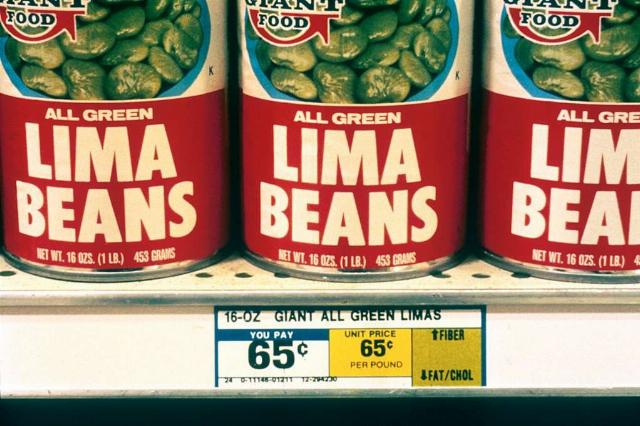Hurray for second choice?
Ballot question no. 3 on the November 2024 ballot is a bad amendment to the Nevada Constitution to implement ranked-choice voting (RCV), which requires that voters rank their preference for multiple candidates for election. There are two frequent arguments for RCV that are made by proponents. The first argument is that everyone is confronted with ranking in their everyday lives so it’s nothing new or confusing. The second one is that giving a vote to a winning candidate, even if that candidate wasn’t your first-place choice, gives you a feeling of empowerment and pride that you took part in the election; your vote was counted and made a difference. But do these arguments hold up? Let’s look at common-sense examples.
The first argument is often illustrated by an example of shopping or eating out. You go to the grocery store, and it’s out of green beans, for example. You second choice is lima beans. So you pick lima beans and go home happy. You ranked your choices, and you got your second-place choice. But really, do people care much about beans? If you were craving a green bean casserole, you’re actually not happy with lima beans. But it doesn’t affect your life much. Beans don’t decide the mandate for your health care, the security of the border, how much funding we give to Israel, or the rate of your income tax. Let’s look at some realistic ranked choice voting situations in everyday life, ones that are moderately important though not critical to your life.
You go to a restaurant for your favorite meal. You’ve been looking forward to this all week. Your mouth begins watering on the drive there. It’s expensive, but worth it, especially after the hard week you’ve had at work. You and your spouse dropped off the kids, got dressed up, and arrived at the restaurant to find out that the meal isn’t available. What’s your second choice? Oh, whatever everyone else is having. Or the restaurant is closed. You’ll just go to the McDonald’s next door instead. Your second choice was fine. Really?
Suppose you want tickets to see Taylor Swift in concert, but it’s sold out. The ticket booth concierge asks you for your second choice. Well, you really wanted to see Swift’s once-in-a-lifetime tour, but you do like Adele. You’re told that Adele just ended her tour. But they do have tickets for Spice Wannabe, the tribute to the Spice Girls. The ticket booth concierge tells you she heard they’re really good. Hurray! At least you got one of your choices. Is that your reaction?
Let’s say you’re a Golden Knights fan. You go to get tickets, but they’re sold out. This is the Stanley Cup playoffs. Is there even a second choice? But then again, the Las Vegas Aviators are having a game, and the tickets are pretty cheap. So you go to that and feel good that you at least got a chance to see a game. Or do you?
Do you actually feel good when you get your second choice? Third choice? Last choice? No choice? Selecting beans is pretty unimportant in your life. Going to a nice restaurant can have an impact for a day or a week. Seeing a once-in-a-lifetime concert or going to a playoff game can be a treasured memory for the rest of your life. Voting for a politician can affect the entire country for years to come and have a serious impact on your life. Don’t let proponents of RCV convince you that it’s just about choosing beans. It’s not.
Bob Zeidman is the creator of the field of software forensics and the founder of several successful high-tech Silicon Valley firms including Zeidman Consulting and Software Analysis and Forensic Engineering. His latest venture is Good Beat Poker, a new way to play and watch poker online. He is the author of textbooks on engineering and intellectual property as well as award-winning screenplays and novels. His latest book is Election Hacks, about the true story of how he challenged his own beliefs about voting machine hacking in the 2020 presidential election and made international news and $5 million.

Image: Picryl/National Cancer Instittute
FOLLOW US ON
Recent Articles
- Sitting Down for the 'College Talk'
- Trump’s Tariffs Will Not Cause Inflation
- The Republican Off-Cycle Election Challenge
- Cory Booker and an MS-13 Massacre
- Disentangle from Europe
- No Evidence Aired in the Media? No Duty. No Apologies.
- What’s the Real Target of the Assault on Tesla?
- MAGA: Progress, Not Perfection
- Saving American Culture through ‘Counter-Spoliation’
- Anecdotes from the Time of Autism
Blog Posts
- America is raising feral children
- Unmanifest Destiny: Is America heading for the ash heap of history?
- A look at the vigilance we need for a safe society
- Mexico supports a terror state
- The making of an anarchist
- Tariffs: Trump, Nancy, and the chatbots (mostly) agree
- Tariffs force the world to bargain
- Washington Post falls for terrorist propaganda...again
- A simple question on trade
- Brace for more astroturf as pre-planned protests ‘spring to life’ this weekend
- To cut your tariff, buy American stuff
- The EU attempts to control the world economy -- again
- Liberation Day vs. double standards
- The mauling of NPR
- Snow Edsel White?






